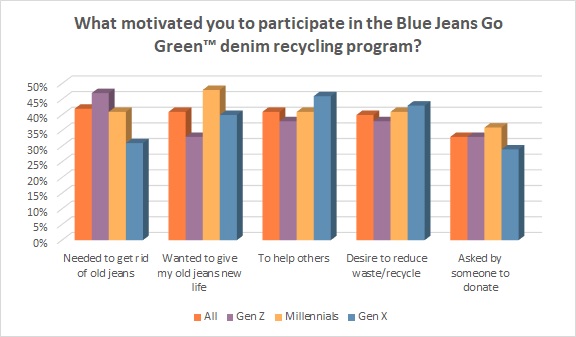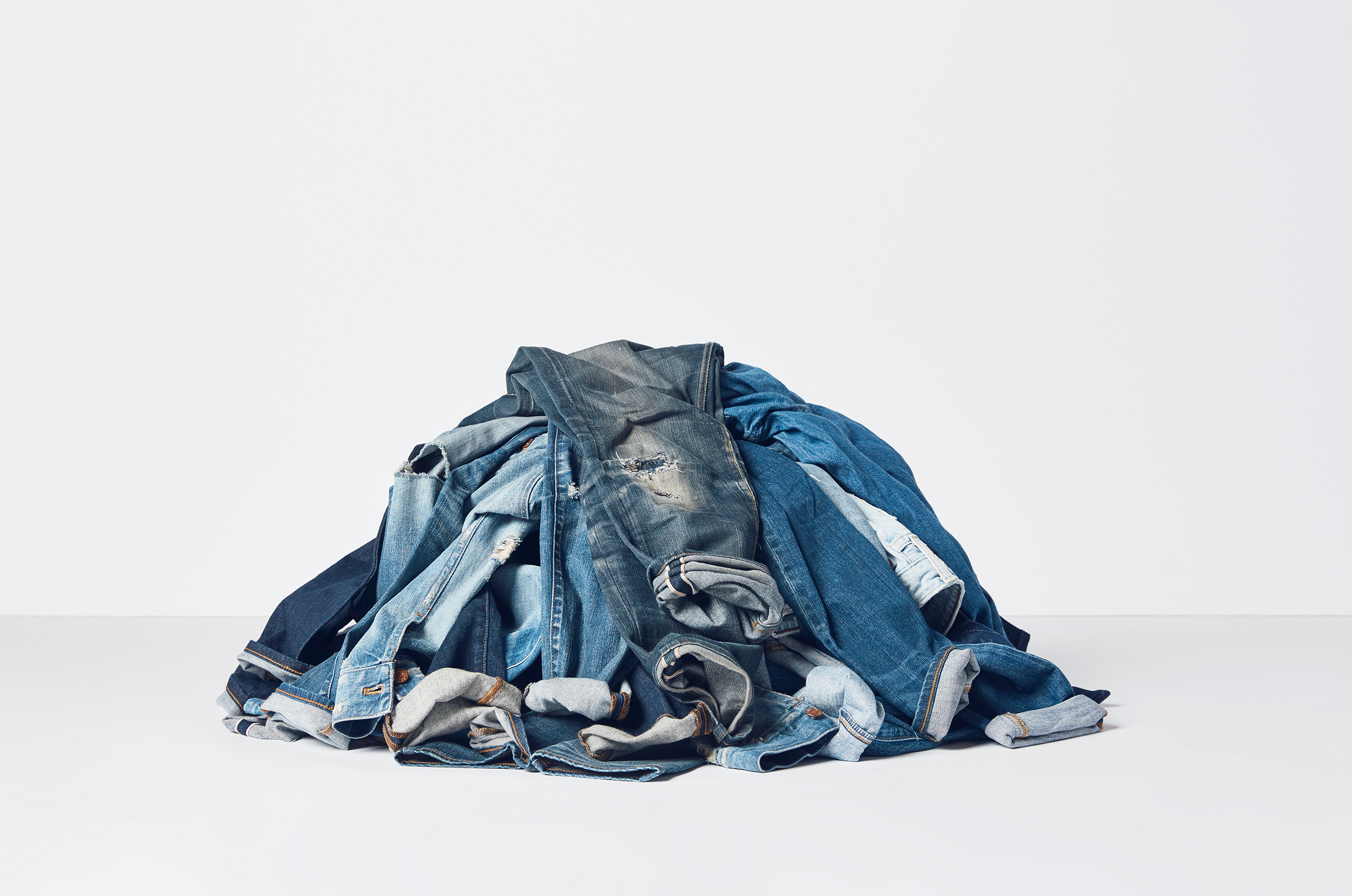America Recycles Day is coming up on Nov. 15 and it gives both consumers and businesses a chance to pitch in when it comes to renewing, reusing, and recycling. Fashion brands can be part of the event, too, whether they’re collecting worn clothes or recycling it into new products.
A Keep America Beautiful initiative, America Recycles Day (ARD), is the only nationally recognized day dedicated to promoting and celebrating recycling the United States. In the past year, the Keep America Beautiful organization has recycled more than 158,000 pounds of clothing and textiles.
This is impressive, but it’s a drop in the bucket considering 14.5 million tons of textiles were landfilled and incinerated in 2018, clothing being the main source, according to the U.S. Environmental Protection Agency.
We’ve had well over 100 brands participate and there’s no cost to be involved. There are a variety of ways brands and retailers can be part of the program. It’s harnessing the collective power of us as an industry to make a difference and reduce landfill waste.
Andrea Samber, Director of Brand Partnerships, Cotton Incorporated
There is, of course, another enterprise that regularly helps consumers and fashion brands in their quest to keep worn garments out of landfills: Cotton Incorporated’s Blue Jeans Go Green™ (BJGG) denim recycling program. Started in 2006, it has collected more than 4.5 million pieces of denim, diverting more than 2,290 tons of the blue stuff from landfills. Working with Bonded Logic, Inc., the collected denim is turned into a nonwoven, padding-type material whose uses include building insulation for Habitat for Humanity affiliates, food packaging, inserts for industrial mattresses, and pet beds.
“It’s a way to give your old denim new life,” said Cotton Incorporated’s Andrea Samber, director of brand partnerships, during the recent Sourcing Journal Fall Summit. She pointed out that brands can join the program by visiting bluejeansgogreen.org. “We’ve had well over 100 brands participate and there’s no cost to be involved. There are a variety of ways brands and retailers can be part of the program. It’s harnessing the collective power of us as an industry to make a difference and reduce landfill waste. So, whether it’s their scraps or non-sellable goods, or whether it’s a consumer-facing promotion where brands are talking to their customer about what their product is made of, and having them come to the store as a drop-off point to continue that conversation and amplify the message, it’s very easy to get involved.”
Last year, Cotton Incorporated expanded its cotton collection efforts to the U.K. with an initiative called Cotton Lives On. In it, any garment – not just denim — that is 85 percent cotton or greater can be collected and turned into a nonwoven, insulating type of material.
Here in the U.S., there are a few ways denim can be collected for the Blue Jeans Go Green™program. Consumers can mail in their denim for free through Zappos for Good; participate in a collection event like those held at schools/college campuses or community drives; or drop off their denim at a local participating retailer, where shoppers may receive a discount on new denim in exchange for their worn pair.
Nearly one-fifth of all consumers (18 percent) have participated in the BJGG program by donating denim jeans to be recycled, according to the 2023 Cotton Incorporated Consumer Circularity Survey. Another 19 percent have heard of the program but have not participated.

Among those who have participated in the Blue Jeans Go Green™ program, 42 percent say it was because they needed to get rid of old jeans, according to the Circularity Survey research. That was followed by wanting to give their old jeans new life (41 percent), wanting to help others (41 percent), a desire to reduce waste/recycle (40 percent), they were asked by someone to donate (33 percent), convenience (29 percent), and an incentive, such as a discount on a purchase (25 percent).
Carhartt is a new retail participant in the BJGG program, having joined this past September.
“In our continued efforts to reduce textile waste and keep clothing out of landfills, Carhartt is leveraging its retail locations to make recycling easier for those whose denim is too worn for reuse,” said Carhartt’s Gretchen Valade, director of sustainability, in an interview with the Lifestyle Monitor™. The company hasn’t yet set an incentivization option. “Carhartt views sustainable business practices as not just corporate responsibility, but rather fundamental to our values.”
When considering circular actions taken by the clothing industry, more than 6 in 10 consumers (63 percent) put recycling at the top of the list, according to the Circularity Survey research. That’s followed by reselling (62 percent), repairing (55 percent), and upcycling (49 percent).
Abercrombie & Fitch has been a participant in the BJGG program since 2014. The retail brand has collected more than 15,000 pieces of denim and diverted over 18 tons of denim textiles from landfills, resulting in 30,0000+ square feet of insulation.
Madewell has been a BJGG participant for nearly a decade and has collected more than 1 million pairs of jeans in that time. At the Sourcing Journal Fall Summit, Liz Hershfield, senior vice president, sustainability for J.Crew Group and senior vice president, sourcing, for Madewell, said when the company collects for the Blue Jeans Go Green™ program, they decide what is in good enough shape that it can be resold on Thredup, and the rest is sent to BJGG for recycling.
These efforts by brands and retailers matter to consumers: 76 percent say circular fashion is important to them, according to the Circularity Survey research. And 60 percent are interested in clothing that is designed with reuse or reselling in mind.
“With a focus on protecting the planet and leaving a better world for future generations of hardworking people, Carhartt continues to explore innovative ways to extend the life of workwear and integrate recycling programs within its sustainability efforts,” Valade says. “The BJGG program aligns with Carhartt Reworked and Repair initiatives, with the goal of reducing clothing waste and keeping clothing out of landfills. With more than 130 years of history, Carhartt is committed to reducing its environmental footprint by keeping its durable products in use longer and in the hands of people who need it.”
